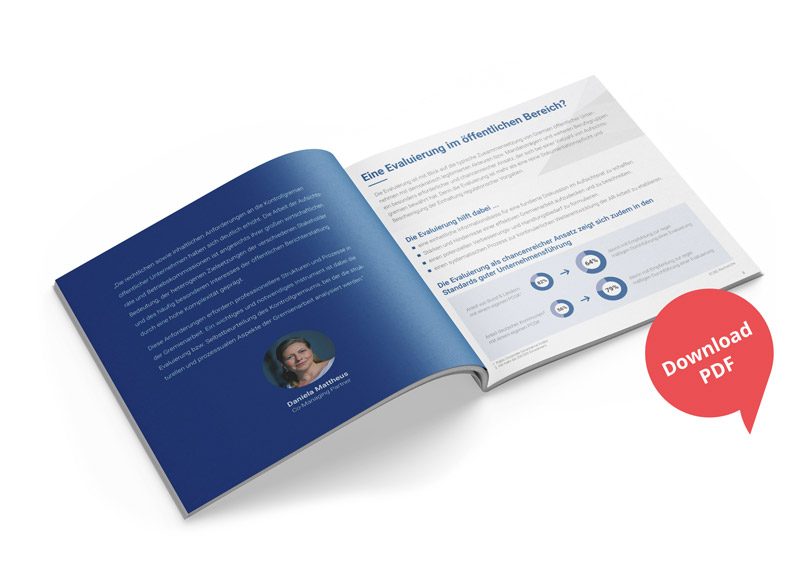Evaluation and self-assessment of supervisory bodies of public-sector companies
The requirements for supervisory boards of public companies have increased significantly
The legal and substantive requirements for the supervisory bodies of public enterprises have increased significantly at federal, state and municipal level. This is particularly evident in the respective public corporate governance codes.
The committee work of public companies is also in view of
their great economic importance,
the heterogeneous objectives of the various stakeholders and
the often special interest of public reporting
characterised by a high degree of complexity. These requirements thus demand professional structures and processes in the committee work of public companies.

Evaluations of the working methods and processes of supervisory boards and works committees are therefore an important building block for our democracy and political governance, especially in the case of public companies. The evaluation serves as an assurance and proof of good committee work and is thus an effective instrument for the reflection of internal processes.
ECBE takes into account the special features of the public sector
In carrying out the evaluation by ECBE, the special features of supervisory board and works committee work in public companies are taken into account. ECBE uses a specific questionnaire for the committee work of public companies. The innovative approach is particularly attractive in the cost-sensitive environment of public companies. At the same time, the evaluation meets the highest quality standards of professional committee work and has proven itself in practice in a large number of evaluations in the public sector.
The evaluation thus achieves more than a mere documentation obligation and certification of compliance with regulatory requirements. Current obstacles in the work of supervisory boards and works committees are actively revealed. Concrete implications for action can be presented, which clarify which aspects can be used to make readjustments. In this way, we create a basis for a well-founded discussion among the committee members, which is the starting point for effective and efficient committee work in the long term.

